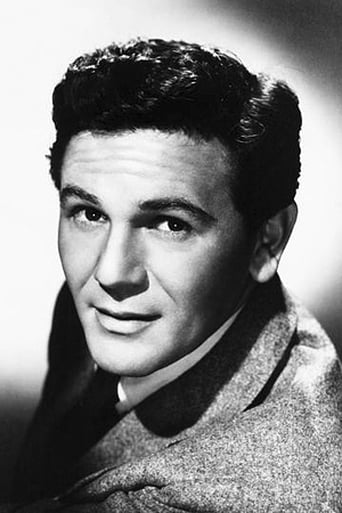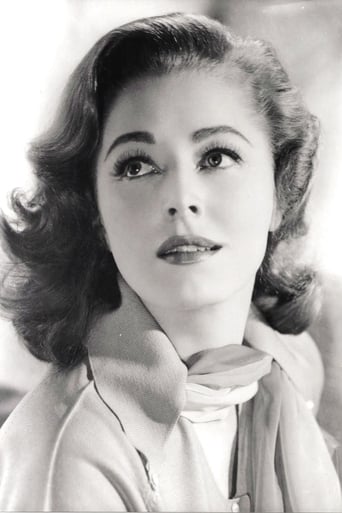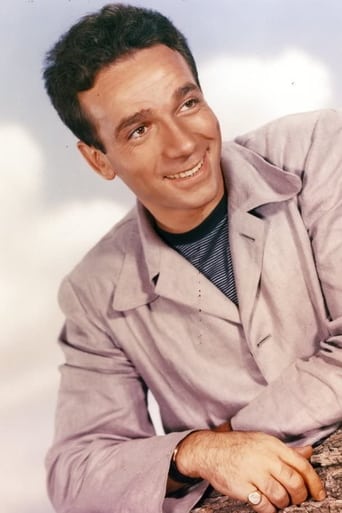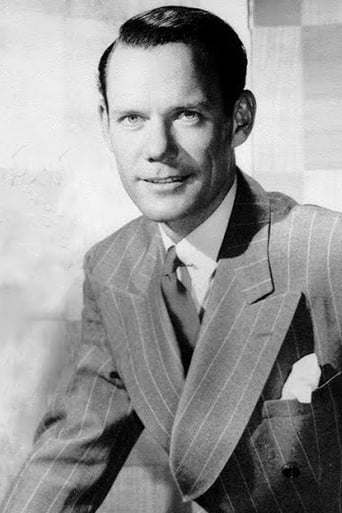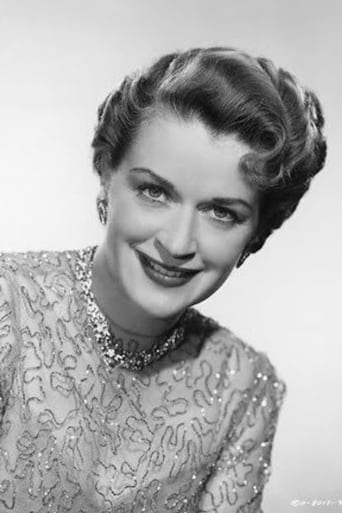Perry Kate
Very very predictable, including the post credit scene !!!
AnhartLinkin
This story has more twists and turns than a second-rate soap opera.
InformationRap
This is one of the few movies I've ever seen where the whole audience broke into spontaneous, loud applause a third of the way in.
Walter Sloane
Mostly, the movie is committed to the value of a good time.
jacobs-greenwood
John Garfield plays Al Schmid, a single friend of married couple Jim & Ella Merchant (Jim Ridgely and Ann Doran) and their teenage daughter Loretta (Ann Todd). Like happily married people are wont to do, they set Al up on a blind date, against his will, with Ruth Hartley (Eleanor Parker). But, after resisting getting involved with her, they begin dating.One day at Al's workplace, where he is a welder, he learns of a friend's enlistment into the Marines and decides to sign up himself. Ruth and Al have a last date, with Al insisting that she forget about him, given his unknown future. However, when she goes to meet his departure train, he is overjoyed and gives her an engagement ring.In the Battle of the Pacific, Al and his squadron find themselves in a foxhole assigned to prevent the Japanese from breaching their line at night. We briefly get to know several of the soldiers, including Lee Diamond (Dane Clark), before the attack. During the attack, many of them are killed but Al ends up single-handedly saving the day. However, he is wounded by a suicide bomber in the final scene of the battle.Later in a hospital, Al learns that he can't see, a condition that doesn't change even after he has surgery. Feeling sorry for himself, he dictates a letter through a nurse to tell Ruth that he is relieving her of any obligation to marry him. Though his friend Lee, the nurse, the doctors, and others try, he will not be convinced or persuaded to try to return to a "normal" life, given his condition. Instead, he stays in the hospital until they no longer allow him to remain there.He returns home on a train, with Lee in tow. However, he does not want to see Ruth and, when he does anyway, will not accept her undying love regardless of her encouraging words. He does not feel that he is a real man anymore, and his pride will not allow her to take care of him. But when he is awarded the Navy Cross for his service in the Pacific, and his vision allows him to "see" a fuzzy red-topped taxicab as Ruth escorts him afterwards, we get our happy ending.This film's Screenplay was nominated for a Best Writing Academy Award.
atlasmb
It seems like most of the reviews on this site are glowing, with 8-10 stars awarded. Yet the average score for this film is 7.4. Obviously the reviews are not representative of the general consensus."Pride of the Marines" does a good job, in the beginning, of providing stark contrast between life at "home" and the hell that was war for those on the front lines during WWII.After Al (John Garfield) is injured and shipped back to the states, the film takes a turn for the worse. It was released in 1945, so we have to give it some slack, but it is just so heavy-handed that it is cringe-worthy. No one would talk the way Garfield does; and he talks nonstop. The biggest problem with the film is that the writer(s) have Garfield voice every thought that goes through his head. The script would have been more effective if it were more subtle. I suppose I should provide an example. In "Stalag 17", for example, the protagonist (played by William Holden) is a man who is hated by his fellow prisoners of war, but he doesn't voice (much) his feelings of disappointment, hate and revenge. His mannerisms and his face convey these feelings as clearly as if we had read his diary.From the beginning of the film, Al is not a very sympathetic character. He is one of those guys who is too proud to express his feelings, like it might make him a sissy. After his injury, his pride gets in the way of his recovery and his relationships. This is a common theme that has been done better in other films. Ironically, the film's title refers to pride, but pride is Al's biggest problem.Part of what makes the film heavy-handed, besides the overbearing dialogue, is the music. And the way it marries patriotism with religious piety. But Hollywood was good at laying it on thick for the home audiences, using its influence to manipulate the masses. The talk about America being a chosen land is standard wartime content. You can bet that German and Japanese scriptwriters were putting out the same sentiments.Garfield does a good job with the script he is given. Eleanor Parker, as his girlfriend, is a fitting representation of the sweet, wholesome woman who remains loyal to her man.
Fred_Rap
John Garfield as the real-life World War II hero Al Schmid gives perhaps his most subtle and nuanced screen performance. Playing a fully realized character with an emotional arc instead of his usual mercurial, Depression-bruised archetype, Garfield eschews the mannered excesses to which he often brought to inferior material. The film itself is a sharply observed, deeply felt biopic about a combat veteran and his period of readjustment after being blinded in action on Guadalcanal.Garfield's Schmid is a forty-buck-a-week factory worker, a jaunty, macho Average Joe, and the first half-hour traces his romance with working-class Jane Eleanor Parker (whose proletarian pretenses can't disguise her tony roots). Despite some sitcom-witty repartee and Parker's cloying nobility, the relationship is effectively (and appealingly) charted. It's all a set-up for the film's final hour in which Schmid holes up in a veteran's hospital, refusing to return home to the imagined charity of his loved ones.What threatens to be overly lachrymose becomes affectingly low-key in Garfield's controlled hands. Without resorting to raging tantrums or a raised voice, Garfield conveys bitterness with blank, downcast eyes and a careful emphasis on dialog -- the way he spits out the word 'pity' almost makes it sound obscene. In his most eloquent moment he barely says a word. During a protracted bout of proselytizing in the hospital ward, a gaggle of wounded vets gripes about their dim future while director Delmer Daves cuts to close-ups of Garfield silently betraying a perverse satisfaction at the communal self-pity. Amidst all the polemical chatter the visual understatement is devastating.Despite an occasional misstep (Garfield's dream scene is hokey and far too literal), Daves' direction is assured and textured. His handling of the action on Guadalcanal is particularly impressive, a harrowing twenty-minute firefight set in a cramped foxhole that stands as one of the bleakest, most terrifyingly visceral combat scenes ever committed to celluloid; you can almost smell the stench of blood, sweat and other bodily fluids emanating from that godforsaken hellhole.With Dane Clark, bursting with energy and overacting up a storm as if angling to steal the spotlight from an atypically reserved Garfield. No way, no how.
Michael Bo
In the immediate aftermath following World War II, sound minds in Hollywood tried to distance themselves from the mindless flag-waving that is a natural ingredient in a war effort. "Best Years of Our Lives' and even 'Gentleman's Agreement' investigated the way Americans looked at themselves in the wake of the war, but Delmer Daves' "Pride of the Marines" beat them to it.The film is about Philadelphia smart alec John Garfield who goes to war as a marine and after a nightmarish evening in a foxhole, with Japanese soldiers eerily crying out at him and his buddies "Mariiines, tonight you die!", he is blinded by a hand-grenade, and dumps his girlfriend back home rather than have to depend on her after coming home.Delmer Daves is uncompromising in his depiction on these men who are brave, as it were, almost by coincidence. They are there, in the foxhole, and when shot at, they react. So much for heroism, but they get the job done. And then comes the self-pity, the dark, gloomy sense of humor. Garfield is in angry denial of his blindness and the film makes no excuses, "There's no free candy for anyone in this world", as his buddy tells him. The same guy, a Jew, played by Dane Clark, reminds him, "In a war somebody gets it, and you're it. Everybody's got problems! When I get back, some guys won't hire me, because my name is Diamond".Great movies are made with guts like these, and if the first half hour of 'Pride of the Marines' fails to rise to the occasion completely, from then on it evolves into a true work of art. You weep, and you ponder, you ache and you hope against hope. Well, simply: art.

